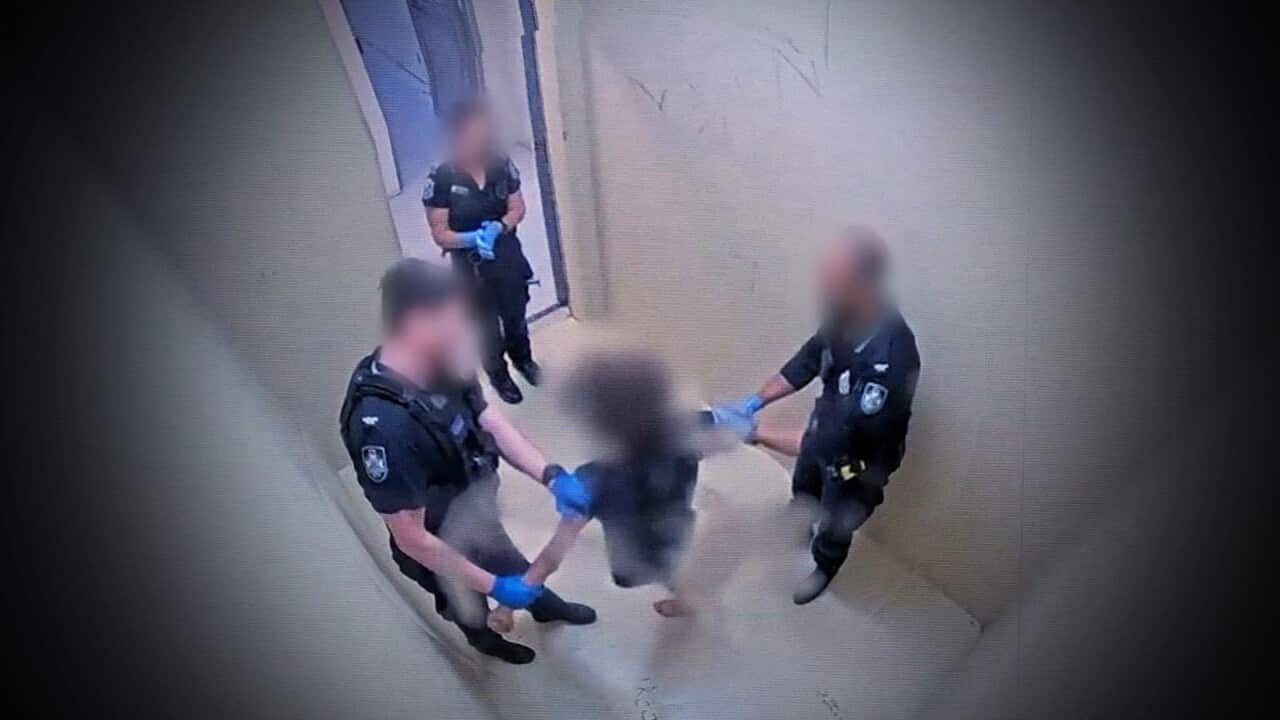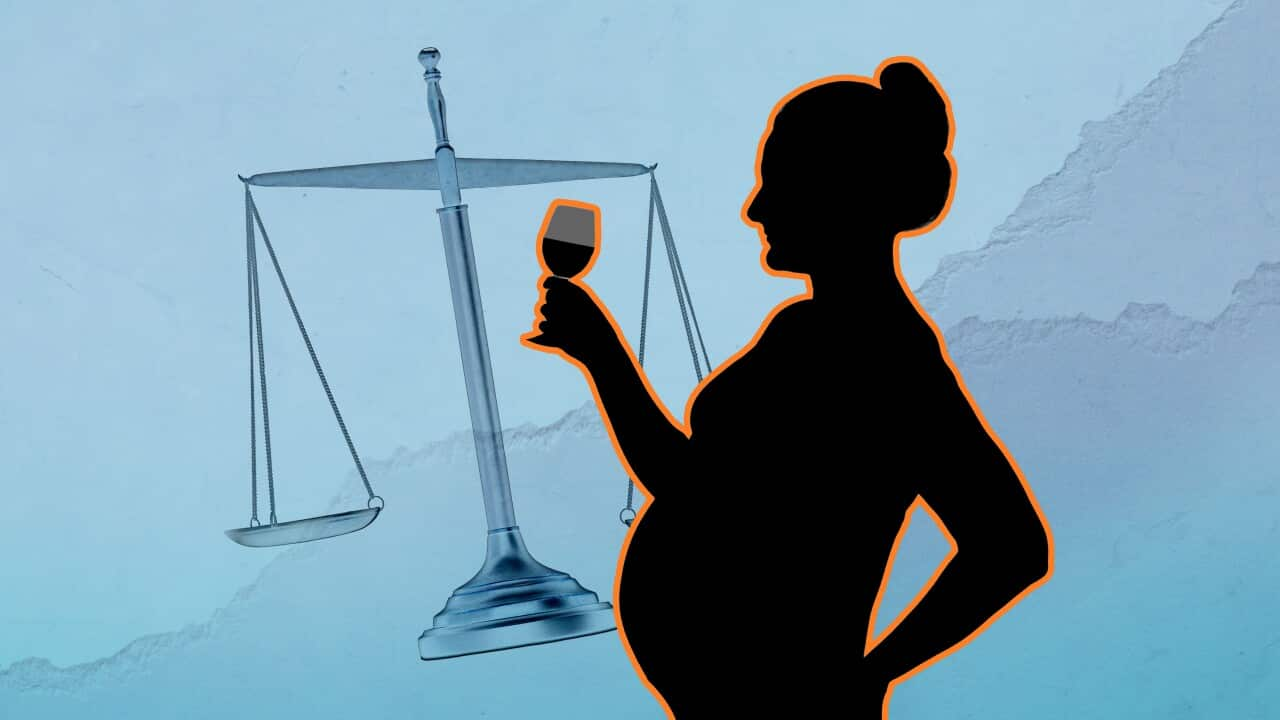This article contains distressing content and references to self-harm.
'The box' is an isolation cell with no toilet, mattress or running water inside Queensland's police watch houses.
Footage obtained through a joint investigation by SBS The Feed and Guardian Australia shows children being placed in isolation cells, in a state of distress.
Sam* was led into an isolation cell after she had been found throwing toilet paper at a CCTV camera in the watch house.
Sam is a 14-year-old First Nations girl from Cairns with severe intellectual disabilities.
Her grandmother says she has the mental capacity of a kindergarten child, and the language skills of a three-year-old — and has been deemed unfit to stand trial in court.
Video obtained after SBS The Feed and Guardian Australia's year-long investigation shows Sam, then 13, becoming increasingly distressed after being brought to the box and trying to get out multiple times.
On the fourth attempt, her arm was caught in the door and she screamed out in pain.
She was later taken to hospital and placed in leg shackles. Police records show they were concerned her arm was broken.
Two months later Sam was arrested, brought into the watch house and placed back into the isolation cell.
For years there have been human rights concerns about what happens to children inside Queensland's police watch houses. For the first time, this exclusive footage shows children in deep distress in isolation cells.
Watch houses are holding cells — often attached to police stations — built to hold adult offenders for a short period, specifically when they're drunk or disorderly.
But children, some as young as 11, are being held there for extended periods, alongside adults.
Police squads exclusively targeting child offenders have been set up to tackle youth crime — like Taskforce Guardian in Queensland, which has arrested more than 1,400 children over the past year.
The Queensland government retrospectively changed the state's Human Rights Act last year to allow keeping kids in watch houses.
Advocate Katherine Hayes says the conditions of confinement are damaging children's chances of rehabilitation.
"We are aware of a large number of awful incidents that have taken place in watch houses across the state.
"Young people being beaten up by either cell mates or guards. Men exposing themselves to young girls or young children ... When kids are coming out of the watchhouse or the detention centre at the moment, they are angry; they are traumatised," she said.
Queensland's Youth Justice Minister Di Farmer said the system has sufficient checks and balances to prevent and address abuse and mistreatment.
"I make no apology for keeping the community safe.
"So if a young person is a risk to themselves or to the community, then they will be detained and that they're in detention or in a watch house because a court has judged that they be placed there."
Queensland Police declined multiple requests for an interview, but in a statement said that when a young person is taken into custody, their physical and mental health are assessed.
Police didn't comment on specific cases, but said they were aware of allegations and that these would be investigated.
With a state election months away and both sides of Queensland politics promising they'll be even tougher on youth crime.
*Name has been changed.
Readers seeking support can contact Lifeline crisis support on 13 11 14, the Suicide Call Back Service on 1300 659 467 and Kids Helpline on 1800 55 1800 (for young people aged 5 to 25). More information is available at and .
Aboriginal and Torres Strait Islander people can also access crisis support by contacting (13 92 76). Additional resources can be found at . can be contacted at 0247 077 989.











